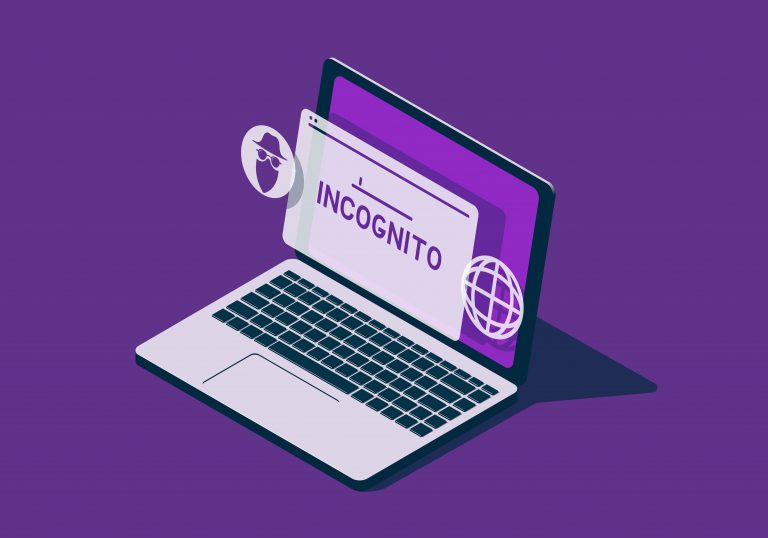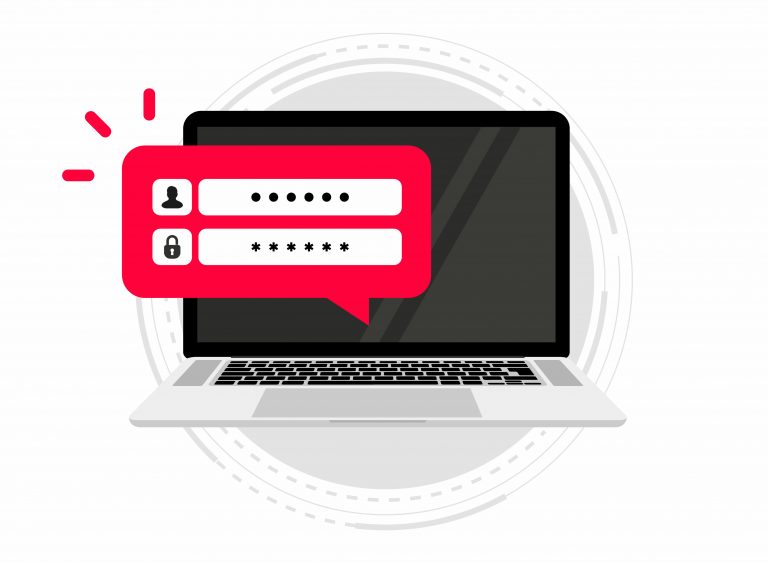Securing Your Health Data: Privacy Measures in Telemedicine
January 25, 2024Telemedicine has become an increasingly popular option for accessing healthcare services, allowing patients to consult with healthcare providers remotely. What…

Are you concerned about your online privacy and looking for ways to enhance it beyond the limitations of incognito mode?
Incognito mode, also known as private browsing or privacy mode, is a feature available in various web browsers that allows users to browse the internet without the browser storing any browsing history, cookies, or site data.
When using incognito mode, the browser does not save any information about the websites visited or the data entered, and it deletes any temporary data upon closing the browser window. This feature is particularly useful for maintaining privacy on shared computers or devices, as it prevents others from seeing the user’s browsing activity.
Browsers like Google Chrome, Mozilla Firefox, Microsoft Edge, and Safari all support this privacy feature, offering users the ability to protect their online activities from being tracked or stored.
Despite its privacy benefits, incognito mode has certain limitations that users should be aware of when using it for browsing.
While incognito mode prevents the browser from storing information about browser history and the websites visited, it does not offer complete anonymity.
However, most browsers, internet service providers, and network administrators can still track the browsing activity, posing a potential risk to user privacy. Additionally, user data protection can be compromised on shared devices, as others using the same device can view the browsing history. Furthermore, some websites may still track user activity and use targeted advertising, even when using incognito mode.
Advanced browsing refers to the use of specialized tools and techniques to enhance privacy and security while navigating the web, offering a more comprehensive approach beyond the standard incognito or private browsing modes.
This approach involves using VPN (Virtual Private Network) services to encrypt and reroute internet traffic, making it difficult for third parties to track user activity.
Additionally, the Tor (The Onion Router) browser directs internet traffic through a worldwide volunteer network to conceal a user’s location and usage from anyone conducting network surveillance or traffic analysis.
Privacy-focused browsers such as Brave and Firefox also provide built-in features to limit data tracking and block intrusive advertisements, optimizing the security and confidentiality of online activities.
Anti-tracking extensions like Privacy Badger and Ghostery further complement these browsers by identifying and blocking tracking codes and cookies that monitor user behavior across websites and social media.
Various types of advanced browsing privacy methods and technologies are available to users seeking enhanced privacy and security while navigating the internet.
One of the most widely used privacy tools is VPN (Virtual Private Network), which creates a secure and encrypted connection between the user’s device and the internet.
Specialized browsers like Tor Browser emphasize anonymity by routing internet traffic through a global network of servers, masking the user’s IP address and making it difficult to track their online activity.
Privacy-focused extensions such as ad blockers, script blockers, and cookie managers enhance browsing security and protect personal information from being exploited.
Advanced browsing significantly enhances privacy by employing robust mechanisms to encrypt and anonymize user data and browsing activity, minimizing exposure to tracking and surveillance.
One of the pivotal methods used in advanced browsing to achieve privacy is through the use of Virtual Private Networks (VPNs). VPNs create a secure, encrypted connection between the user and the internet, preventing third parties from intercepting or monitoring the data.
Many browsers offer secure browsing modes that restrict tracking cookies, block ads, and ensure encrypted connections. Some specialized browsers, dedicated to privacy and security, integrate features such as built-in ad blockers, tracking prevention, and strict privacy settings.
Yes, advanced browsing, particularly when using VPNs, effectively hides the user’s IP address, replacing it with the IP of the VPN server, thereby safeguarding the user’s online identity and location.
When a user connects to a VPN server, all their internet traffic is routed through the server, creating a secure, encrypted connection that shields their online activities from prying eyes.
This seamless process ensures privacy and anonymity, making it challenging for third parties to track the user’s online movements or collect their personal data.
Yes, advanced browsing methods, such as utilizing anti-tracking extensions and privacy-focused browsers, can effectively prevent tracking by blocking cookies, scripts, and other tracking mechanisms employed by websites and third-party services.
These tools offer users a powerful shield against invasive tracking practices, safeguarding their online privacy and preventing extensive data collection by entities across the web.
Anti-tracking extensions, for instance, work by interrupting the flow of data between the user’s private browser, and tracking services, ensuring that personal information remains confidential. Privacy-focused browsers, on the other hand, emphasize anonymity and limit the exposure of user data, keeping tracking cookies and ad scripts at bay while promoting a more secure browsing experience.
Advanced browsing provides data protection through encryption and secure communication channels, safeguarding user data from unauthorized access, interception, and tampering during online interactions.
Encryption plays a crucial role in advanced browsing by encoding data, making it indecipherable to unauthorized individuals or malicious entities attempting to intercept sensitive information.
Secure communication channels, such as SSL/TLS protocols, create a secure pathway for data transmission, minimizing the risk of eavesdropping and man-in-the-middle attacks. In addition, Virtual Private Networks (VPNs) establish secure connections, masking the user’s IP address and encrypting all data traffic, ensuring anonymity and protection from potential threats.
Several advanced browsing tools are available to users, offering diverse features and capabilities to enhance privacy, security, and control over browsing experiences.
VPN services stand out as a popular choice for safeguarding online activities by creating a secure and private network connection. They enable users to access geo-blocked content and mask their IP addresses, thus protecting their online presence.
Privacy-focused browsers like Brave and Tor prioritize user privacy by blocking trackers, ads, and cookies, providing a more anonymous browsing experience. Anti-tracking extensions, such as Privacy Badger and uBlock Origin, offer added layers of protection by preventing websites’ private browsers from tracking users’ activities.
Security-conscious users also benefit from secure browsing modes, which are available in various browsers, including Google Chrome and Microsoft Edge, as these modes minimize the risk of malware, phishing, and other online threats.
Virtual Private Networks (VPNs) are powerful tools that enable users to establish secure and encrypted connections to the internet, effectively concealing their browsing activities and protecting sensitive data from interception.
By utilizing encryption protocols and secure tunneling techniques, VPNs ensure that the data transmitted between a user’s device and the internet is shielded from unauthorized access. This not only safeguards personal and financial information from potential cyber threats but also allows individuals to browse the web anonymously, free from the prying eyes of ISPs, government agencies, and hackers.
One of the key benefits of using a VPN is the ability to access geo-restricted content and circumvent censorship. By connecting to servers located in different parts of the world, users can bypass regional restrictions and enjoy unrestricted access to streaming services, websites, and online resources.
The Tor Browser is a privacy-focused web browser that routes user traffic through a global network of volunteer-operated servers, offering enhanced anonymity and resistance to network surveillance.
This unique approach to privacy and anonymity is achieved through the use of Tor’s decentralized and encrypted network. This prevents anyone from tracking users’ internet activity and location.
Unlike traditional web browsers, Tor works by bouncing communications around a vast network of relays. This makes it extremely difficult for anyone to trace the user’s online activities. Additionally, this network allows for access to websites that are blocked or censored, further emphasizing the importance of Tor in protecting user privacy in today’s digital age.
Ad blockers are essential browsing tools that effectively block intrusive advertisements, do ad blocking, prevent data tracking by ad networks, and improve the overall browsing experience by reducing clutter and distractions.
By efficiently filtering out pop-up ads, banners, and other forms of online advertising, ad blockers provide a smoother and faster browsing experience.
They also contribute to enhanced user privacy by blocking tracking scripts, cookies, and other tools that collect and monitor user data without consent. This not only protects user privacy but also helps prevent potential security threats and data breaches resulting from malicious advertisements.
Anti-tracking extensions offer enhanced browser privacy by actively blocking cookies, scripts, and tracking mechanisms employed by websites and third-party services, thereby minimizing data collection and profiling of user browsing activities.
These extensions provide users with a significant level of control over their online presence, as they prevent advertisers and other entities from gathering extensive information about their browsing behaviors.
By limiting data collection and profiling, anti-tracking extensions help safeguard sensitive information and protect individuals’ privacy. They contribute to a more personalized and uninterrupted browsing experience by eliminating intrusive ads often associated with targeted tracking.
With the continuous rise in privacy concerns, anti-tracking extensions play a crucial role in enabling users to manage and secure their online privacy effectively.
Utilizing advanced browsing techniques for enhanced privacy requires a strategic combination of tools, regular data clearance, and an understanding of privacy policies and settings across various devices and browsers.
These techniques give the power to individuals to take control of their online privacy proactively. First and foremost, using a Virtual Private Network (VPN) is fundamental. It encrypts internet traffic, providing a secure connection to the internet, and shielding personal data from potential threats.
Employing privacy-focused search engines and browser extensions that block trackers and ads further enhances privacy. Regular data clearance involves deleting browsing history, cookies, and cache files. It’s essential to review and adjust privacy settings on all browsers and applications regularly to ensure they align with personal preferences.
Understanding privacy policies is crucial, as it enables users to make informed decisions about the collection and usage of their data. Staying updated on the latest privacy laws and regulations is also imperative for maintaining a high level of privacy.
Enhancing privacy through advanced browsing involves utilizing a combination of privacy tools, such as VPNs, privacy-focused browsers, and anti-tracking extensions, to create a layered defense against tracking and data collection.
Each of these tools plays a crucial role in tracking protection and safeguarding your digital privacy.
VPNs (Virtual Private Networks) encrypt your internet connection, routing it through a secure server to mask your IP address and online activities. They provide anonymity and shield your data from potential eavesdroppers on public Wi-Fi networks or your internet service provider.
Using a privacy-focused browser, like Tor or the Brave browser, adds another layer of defense. These browsers are designed to prioritize user privacy, blocking trackers, and preventing third-party cookies from profiling your browsing behavior. This shields against targeted ads and invasive data collection by advertisers.
Anti-tracking extensions, such as Privacy Badger or uBlock Origin, work in tandem with these tools by actively blocking intrusive tracking cookies and scripts that monitor your online activities. Their customizable settings allow you to strengthen your defenses according to your privacy preferences.
Integrating these tools creates a symbiotic effect, exponentially increasing the strength of your privacy shield. Their combined usage fortifies your online presence, making it significantly harder for entities to track, monitor, and exploit your digital footprint.
By leveraging these privacy tools in harmony, internet users can build a robust, multi-layered defense system that prioritizes their privacy and security.
Regularly clearing browsing data, including cookies, cache, and site data, is essential for maintaining privacy and reducing the traceability of user activity across websites and online platforms.
To ensure effective data clearance, it’s crucial to understand the specific steps for different browsers and devices.
In Chrome, you can clear browsing data by clicking on the three-dot menu, selecting ‘More tools’, and then ‘Clear browsing data’.
For Firefox, navigate to the ‘History’ menu and choose ‘Clear Recent History’.
Regarding mobile devices, accessing the settings or privacy menu and selecting ‘Clear Browsing Data’ typically achieves the same result.
Regular data clearance not only enhances privacy but also improves the overall browsing experience.
Understanding and being aware of privacy policies, settings, and data handling practices for various websites, platforms, and browsers is crucial for well-considered choices and maintaining privacy while browsing the internet.
By understanding and familiarizing themselves with the privacy policies of different online entities, individuals can ensure that their personal information is handled responsibly and according to their expectations.
Being informed about the settings available on various platforms allows users to customize their privacy preferences to suit their comfort levels and requirements. Knowledge about data handling practices helps users make conscious choices about the data they share and the security measures in place to protect it.
Along with privacy and security enhancements, advanced browsing offers benefits such as faster browsing speed, protection against malware, and access to geo-restricted content, enriching the overall browsing experience for users.
The faster browsing speed gives the power tos users to navigate the web swiftly, enhancing efficiency and productivity. It facilitates seamless streaming and downloading of content, providing a seamless browsing experience.
The protection against malware safeguards users from potential cyber threats, ensuring a secure and reliable browsing environment. The access to geo-restricted content enables users to explore a broader range of online resources, opening avenues for entertainment, education, and information. These advantages collectively elevate the user’s browsing journey, making advanced browsing a valuable addition to their digital experiences.
Advanced browsing methods often result in faster browsing speeds and improved page loading times, enhancing the efficiency and responsiveness of the user’s browsing experience.
One of the key factors contributing to faster browsing speeds is the use of HTTP/2 protocol. This protocol allows for multiple concurrent connections between the browser and the server, resulting in more efficient data transfer. Additionally, browser caching techniques store frequently accessed resources locally, reducing the need for repeated downloads and speeding up page loading times. Furthermore, content delivery networks (CDNs) distribute website content across multiple servers globally, allowing for quicker access to website data, and resources.
Advanced browsing provides enhanced protection against malware and malicious threats by implementing secure connections, encryption, and proactive content filtering mechanisms.
Secure connections, such as HTTPS, ensure that data exchanged between the user’s device and the website is encrypted, reducing the risk of interception by malicious actors. Encryption scrambles the data in a way that only authorized parties can access it, thereby safeguarding sensitive information.
Proactive content filtering mechanisms identify and block potentially harmful content, preventing users from inadvertently accessing malicious websites or downloading infected files. By integrating these measures, advanced browsing significantly reduces the vulnerability to malware and enhances overall security.
Through the use of VPNs and location-masking techniques, advanced browsing enables users to access geo-restricted content and online services that may be otherwise inaccessible from their geographical location.
VPNs, or Virtual Private Networks, offer a secure and private connection to the internet, allowing users to obscure their actual location and appear as though they are accessing the web from a different geographical region.
This feature provides numerous benefits to users, particularly when it comes to accessing region-locked streaming services, such as Netflix libraries specific to certain countries, or gaining access to websites and services that are restricted based on a user’s IP address.
By utilizing a VPN, individuals can also enhance their online security and privacy while bypassing censorship and surveillance.

Telemedicine has become an increasingly popular option for accessing healthcare services, allowing patients to consult with healthcare providers remotely. What…

In a world where cyber threats are becoming increasingly sophisticated, the importance of having strong passwords cannot be overstated. But…

Are you looking for a new job while still employed? Discreet job searching online is the key to keeping your…